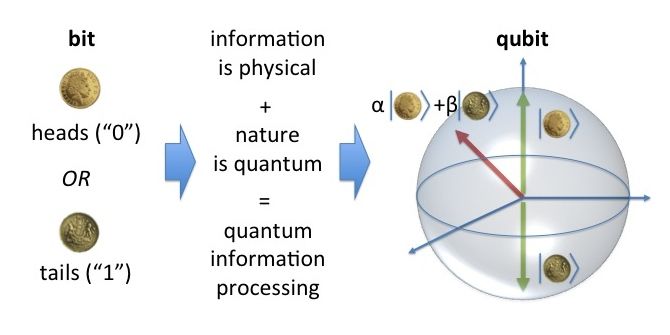The field of Quantum information was born from the recognition that the nature of information depends on its instantiation. Information is represented by the configuration of matter and energy, hence the way that information can be stored, transmitted, and processed is determined by the laws governing physical systems. At the scales accessible to humans, the relevant physical laws are those of quantum mechanics. Hence, quantum information is the study of how quantum theory affects our ability to conceptualise and process information.
This has led, on one hand, to the study of how complex quantum systems can be understood in terms of their information carrying properties. On the other hand, it has opened the door to novel applications not possible with conventional “classical” information theory, such as perfectly secure communication, the efficient simulation of quantum systems, and ultrafast quantum computers. The last two decades have seen an explosion of interest and progress in bringing quantum information into the real world, but it has also offered insights into the fundamental nature of physics, computation and information. Beyond the laboratory, the first commercial quantum devices have appeared on the market.
Here at Strathclyde, we work on a range of topics from fundamental properties of quantum theory, to putting quantum experiments into space. We are also a member of Quantum Information Scotland (QUISCO), which promotes interdisciplinary research in this area.
REFERENCES
Quantum Computation and Quantum Information, M. A. Nielsen and I. L. Chuang, Cambridge University Press (2000)
